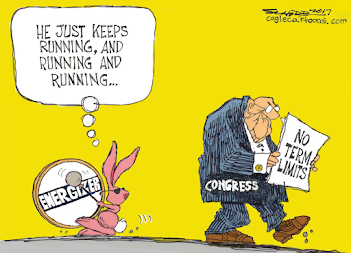The Kenyatta Conundrum: Why "Electability" Really Grinds My Gears
By J.T. Thomas
(Just a disclaimer, this piece is my own personal opinion, not that of the PSU College Democrats)
Earlier this month, we did a fun little activity at a meeting. We wanted to see what would happen if the Pennsylvania Senate primary were decided that day, by the PSU College Dems.
It was a standard caucus setup; people who wished to vote for a specific candidate got up and went and stood in a specific place corresponding to that candidate. But this is where it gets interesting: after a few minutes of preparation, each group would have to elect one representative to get up and speak on why their group supports their candidate, and to try and convince others to switch sides and join their group.
Things broke down pretty much how you’d expect. A few different lesser known candidates got a few votes, Malcolm Kenyatta got a sizable portion, and John Fetterman got the majority. Representatives got up and spoke, mostly without incident. In the end, Fetterman won out.
So, if the whole thing was relatively uneventful, why the hell am I writing a blog post about it? Well, I’m writing because of something that our Political Affairs Chair, Emma Cihanowyz, said towards the end. The both of us were in the Kenyatta group; I had finished speaking, and we were listening to Fetterman’s group. Their representative made the claim that Fetterman was the most “electable” candidate, at which point Emma rolled her eyes and muttered, “who’s tired of choosing candidates because they’re ‘electable’?”
She raised her hand, as did everyone who had heard her, myself included. The conversation didn’t go any farther than that, but it’s stuck with me, even now, a few weeks later. Emma’s right; “electability” is frankly a bullshit way to gauge if you should support a candidate. Let me break it down for you.
Let’s stay with the PA Senate primary, which at this point looks like it’s going to boil down to Fetterman vs. Kenyatta. In terms of policy, the two men are actually pretty similar; they both tout progressive platforms, with some common issues including fighting climate change, healthcare for all, and securing reproductive justice. Sure, there are personal quirks here and there, but for the most part there is considerable overlap between where both candidates stand on a crap ton of issues, which makes it unlikely that Fetterman is more “electable” based on policy. So, why is he favored?
To me, the answer is obvious: Malcolm Kenyatta is a black, gay man in his thirties, whereas John Fetterman is white, straight, and in his fifties.
Kenyatta represents a whole host of groups that are underrepresented in the Senate: the black community, the LGBTQIA+ community, young people. The argument is that these identifiers may not be popular with PA voters who are in the middle, which would lead them to vote for a different candidate and possibly lose the race for Democrats. Therefore, we should put time and resources into a candidate who those voters might like better. In short, the more “electable” candidate.
There are two major issues with this line of thinking. One, we as a party should choose our potential leaders based on our values. If we want to enact progressive change, we can’t be beholden to those who are on the fence or in the middle. They will always hold us back somehow. Of course, John Fetterman is a progressive, so that argument may hold little water in this particular example. This leads me to my second, and far more important, point. By labeling certain identifiers or a certain combination of identifiers as “unelectable,” we are essentially gatekeeping who can and cannot run for office and participate in politics. This does nothing but support the status quo and push minorities even further to the margins of our society. That is not what the Democratic party should stand for.
Now, if you support John Fetterman because you actually really like him, that’s totally valid. And, just to be clear, I will most likely end up supporting whoever ends up as the Democratic nominee. My point is, if you support John Fetterman simply because you think he’s more likely to win, I would invite you to think critically about why you believe this. Sure, a candidate like Malcolm Kenyatta might not be liked by everyone, and if he were chosen as the Democratic candidate, it might take a lot more work to get him elected to the Senate. But this is politics; you can’t please everyone, and no one ever said it was going to be easy. If we’re not willing to put in the work to give the unrepresented a voice, or if we actively keep them out of positions of power, can we really call ourselves Democrats?




I'd argue that if there is a lot of overlap between the two on policy, you would actually be doing underrepresented groups a disservice by making it easier for a Republican to win. It is great for the underrespresented to have more representation, but ultimatley, enacting a progressive agenda will benefit their day to day lives more, which cannot happen if a Republican is elected and Mitch McConnell is put back in charge. If a Republican wins it'll take six years for them to be put up for re-election at which point they'll have the power of incumbency making them much harder to defeat. Can climate change afford 6+ more years of innaction? I think the underrepresented groups will understand the importance of winning and wouldn't be too hurt if Kenyatta loses to Fetterman because he is less electable.
ReplyDeleteIt's unfotunate that this it the way it has to be, but I think flipping this seat blue is too important to take risks.
Delete